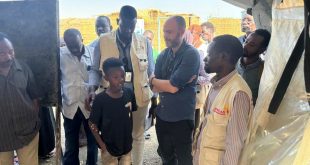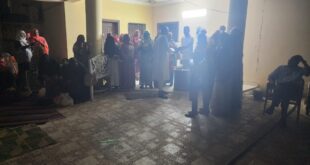Humanitarian organizations in Sudan are facing significant challenges as they work to provide assistance in the midst of ongoing conflicts. These challenges have intensified due to the protracted violence between the Sudanese army and the Rapid Support Forces (RSF), which has disrupted the flow of aid and further deteriorated the living conditions for civilians.
Humanitarian organizations are essential in delivering food, medical aid, and shelter to those affected by the conflict, particularly in regions like Darfur and the Blue Nile. However, these efforts are severely hindered by continuous fighting, which makes it difficult to reach affected areas. Additionally, there have been reports of aid trucks being looted, adding to the complexities of delivering relief.
According to United Nations reports, there are more than 9 million internally displaced persons (IDPs) in Sudan, making it the largest displacement crisis in the world today. Furthermore, over 1.8 million people have fled to neighboring countries such as Chad and South Sudan, putting additional strain on the infrastructure of these nations. The growing humanitarian needs underscore the urgency for coordinated action to provide relief.
Amidst these challenges, humanitarian organizations are calling for enhanced monitoring of border crossings like the Adré crossing between Sudan and Chad to ensure that aid reaches those in need and is not diverted for other purposes, such as weapon smuggling. The international community is urged to guarantee the continuous flow of humanitarian aid in a safe and organized manner, given the escalating humanitarian crisis in Sudan
 AFRICAN VISION FOR DEVELOPMENT ORGANIZATION منظمة الرؤية الأفريقية للتنمية
AFRICAN VISION FOR DEVELOPMENT ORGANIZATION منظمة الرؤية الأفريقية للتنمية



